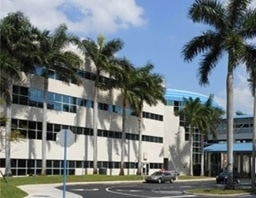
What is psoriasis?
Psoriasis is a common and chronic condition that usually causes patches of itchy, scaly and sometimes inflamed skin. Although they can appear anywhere, these patches, called plaques, are most likely to crop up on your knees, elbows, hands, feet, scalp, or back. According to the American Academy of Dermatology, the fingernails and toenails are also affected in about 50% of cases of active psoriasis.
What are the symptoms of psoriasis?
The symptoms of psoriasis can vary a great deal depending on its severity, ranging from mildly annoying to truly debilitating. Psoriasis of the skin or nails may look like a rash or fungus, but you can't catch psoriasis from another person. You also can't give it to anyone else or spread it from one part of your body to another by touch. Experts now know that if psoriasis runs in your family, your chances of developing it are higher. While the itchiness and pain can be unpleasant, some of the worst effects of psoriasis can be emotional. People with severe psoriasis sometimes are so overwhelmed by their condition and self-conscious of their appearance that they feel isolated and depressed.
What causes psoriasis?
Normally, skin cells are constantly being formed deep beneath the surface of your skin. Over about a month, these cells are pushed up to the surface. This is called cell turnover. The cells eventually die and flake off, revealing new skin cells. In people with psoriasis, the skin cells grow too quickly. Cell turnover can happen in a matter of days. Layers of skin build up, forming a whitish, flaky crust. Blood vessels increase flow in an attempt to nourish this skin, which leads to redness and swelling. The classic symptoms of psoriasis are reddened, inflamed skin with a whitish, flaky layer of dead cells on top.
Are there different types of psoriasis?
There are several different types of psoriasis. About 90% of all cases of psoriasis are plaque psoriasis, but other varieties include:
Guttate psoriasis
This form of psoriasis usually affects children, teenagers, and young adults. It often appears after a bacterial infection, such as strep throat. Typical symptoms include red, scaly, raindrop-shaped spots on the skin, usually over the abdomen, arms, legs and scalp. It can often clear up on its own without treatment.
Pustular psoriasis
The typical symptoms of pustular psoriasis are pus-filled blisters on the skin. The blisters usually dry up, turn brown, become scaly and peel off. The lesions usually occur on the hands and feet.
Erythrodermic psoriasis
Symptoms include red and scaly skin over large areas of the body. This condition can evolve from other forms of psoriasis or be triggered by psoriasis treatment. It can also be triggered by withdrawal from drugs such as corticosteroids (often taken for diseases such as asthma).
Inverse psoriasis
In people with this condition, dry and bright red patches appear in folds of skin, for instance under the breasts, in the armpits, or on the genitals. This type of psoriasis can be exacerbated by obesity.
What psoriasis treatments are available?
The following psoriasis treatments are provided at Hollywood Dermatology to treat patients suffering from psoriasis:
XTRAC® Laser Treatment
XTRAC® laser treatment provides treatment for mild to severe psoriasis by delivering a highly targeted therapeutic beam of UVB light to the affected area without harming the surrounding healthy skin. The XTRAC® psoriasis treatment is FDA cleared, safe, and dermatologist recommended. Hollywood Dermatology is a certified XTRAC® provider, offering exceptional treatment from our experienced, board-certified specialists. Click here to learn more.
Biologics
Biologic drugs are medications used to treat moderate to severe psoriasis through injection or intravenous (IV) infusion. The drug itself is protein-based and is derived from a culture of live cells. The state-of-the-art technology used to treat psoriasis with biologics has made this treatment option incredibly popular within the last decade.
UV Light Treatment
Ultraviolet (UV) light treatment, also known as phototherapy or light therapy, involves a doctor exposing a patient’s skin with ultraviolet light repeatedly over a period of time. This treatment has proven successful in treating psoriasis when done consistently over time with a doctor’s supervision.
Light Box
A light box is a tool used to emit ultraviolet B (UVB) light to help treat psoriasis. Light boxes are used during UV light therapy for moderate to severe psoriasis, and should only be used when recommended by a doctor. Unlike tanning beds, which emit mostly ultraviolet A (UVA) beams, light boxes for psoriasis only emit UVB lights. UVA lights do not help treat psoriasis and tanning beds should not be used as an alternative, according to the National Psoriasis Foundation.
Excimer Laser
The excimer laser is a FDA-approved treatment for psoriasis that emits a high-intensity ultraviolet light beam, targeting specific areas of skin affected by psoriasis. The laser should only be used as recommended by your doctor, and may take multiple treatments to see results.
Schedule a Psoriasis Treatment Consultation
If you are looking for a dermatology practice that specializes in psoriasis treatment, please call us at 954.961.1200, visit our contact page, or use the form on this page to schedule a consultation at Hollywood Dermatology's Psoriasis Center of Excellence.






